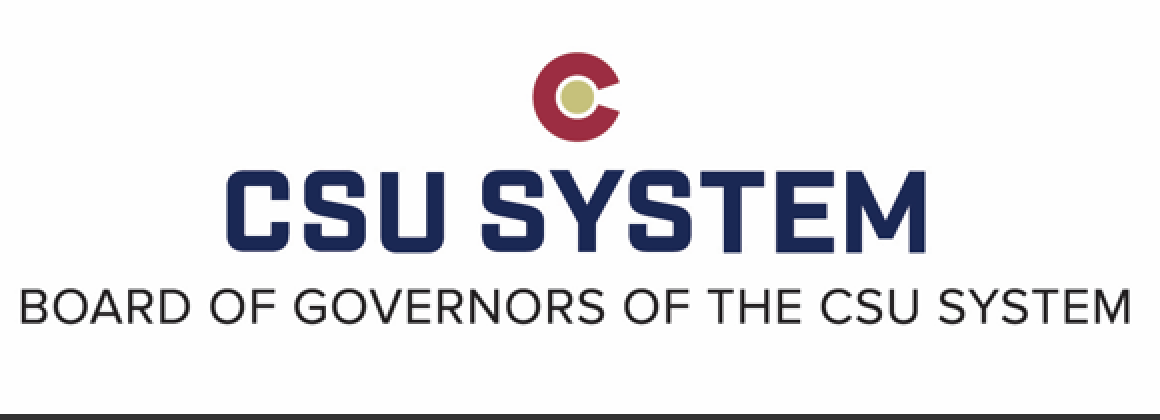
The Board of Governors voted June 8 to approve a 2023-24 budget that features the most significant investment in compensation that CSU has ever made, including a 5% salary increase pool for faculty, staff and graduate assistants effective July 1.
“We have been able to prioritize compensation in this budget, with $27.4 million allocated toward wage increases,” CSU President Amy Parsons said. “This is part of a multi-year commitment to raising salaries, as well as to equity in compensation. Another impactful part of this budget is increasing financial aid for students by $4.2 million. This is a reflection of CSU’s dedication to student access as well as an adjustment for rising costs.”
In addition to the merit-based raise pool, the budget includes equity investments to bring administrative professionals to a baseline annual salary of $50,000. While CSU faculty salaries are generally between 91% and 96% of the median for peer institutions, there are a few departments where compensation lags behind peers more than that. As a result, the new budget also establishes a minimum faculty compensation level of at least 80% of the peer median.
State classified salaries are determined by the state, but a 5% raise pool has been set for those staff as well.
In addition to the compensation increases, CSU will receive $2.2 million from the state for the third and final phase of network hardware upgrades. About $9.7 million is being allocated for state-funded controlled maintenance projects, and the Clark Building revitalization project will receive $23.9 million from the state.
State support
CSU System leaders thanked state officials – particularly the Joint Budget Committee and Gov. Jared Polis – for their funding support during a year of significant inflationary pressures. Statewide general fund appropriations to higher education in Colorado increased by 11.5% this year, with an 11% increase for the CSU System.
“We started out this budget cycle hoping to cover mandatory costs and make progress on employee compensation – and we’re grateful we’ve been able to do both while keeping tuition increases at a reasonable level,” Chancellor Tony Frank said. “That has only been possible with the hard work and dedication of our state leaders, who recognize the importance of keeping Colorado higher education accessible, affordable and able to compete for and retain top faculty and staff.”
He added that the Board of Governors recognized the various financial strains on employees.
“Housing, health care, and inflation are placing a lot of pressure on employees who are trying to balance their own family budgets,” Frank said. “The Board heard these concerns plainly and made them a priority in our budget process.”
Tuition rates
The CSU budget of about $1.5 billion also keeps tuition increases below the rate of inflation and legislative allowances.
While the state had authorized tuition increases of up to 5%, the budget approved by the board holds those increases to 4% for undergraduate students and 3% for graduate students.
The budget helps offset the increases by investing money to ensure that the lowest income students will not experience the change. CSU is investing about 20% of the resident tuition increase into financial aid this year.
For in-state students, the tuition hike represents an increase of $198 per semester; for nonresidents it represents $597 per semester.
Graduate assistant fees will begin to be paid by the university in a three-year phased approach starting with the 2023-24 budget, as part of an ongoing focus on improving graduate assistant compensation.
Financial aid
Each year, approximately 20% of CSU students, or more than 4,700 students, receive a combination of federal Pell Grants, Colorado Student Grants and CSU Tuition Assistance Grants (C-TAG) to cover all tuition costs, including any proposed tuition increase.
For students from low-income to lower-middle income families, C-TAG covers not only the cost of tuition and fees, but also housing for students who qualify for the federal Pell Grant. The program is systematically designed to increase at the same rate that tuition increases. So, if tuition increases by 4%, the CSU Tuition Assistance Grant will increase by at least that amount.
About 84% of CSU students receive financial aid, and $10,034 is the average grant aid amount. Last academic year, 47.7 % of CSU graduates had taken out loans to pay for school, and 52.3 % of graduates did not have any debt. The average debt for a CSU graduate is $27,363, lower than the national average of $29,719.
Earlier this spring, the University of Colorado Board of Regents approved a 4% tuition increase for both graduate students and new undergraduate students in its 2023-24 budget, which will be finalized this month.
The CSU budget was created in consultation with the university’s shared governance groups and leadership across the university and was refined over the course of the past year.
The three CSU System campuses, and the out-of-state students they attract in an average year, fuel nearly 23,000 Colorado jobs and roughly $238 million in state income and sales tax revenue annually.